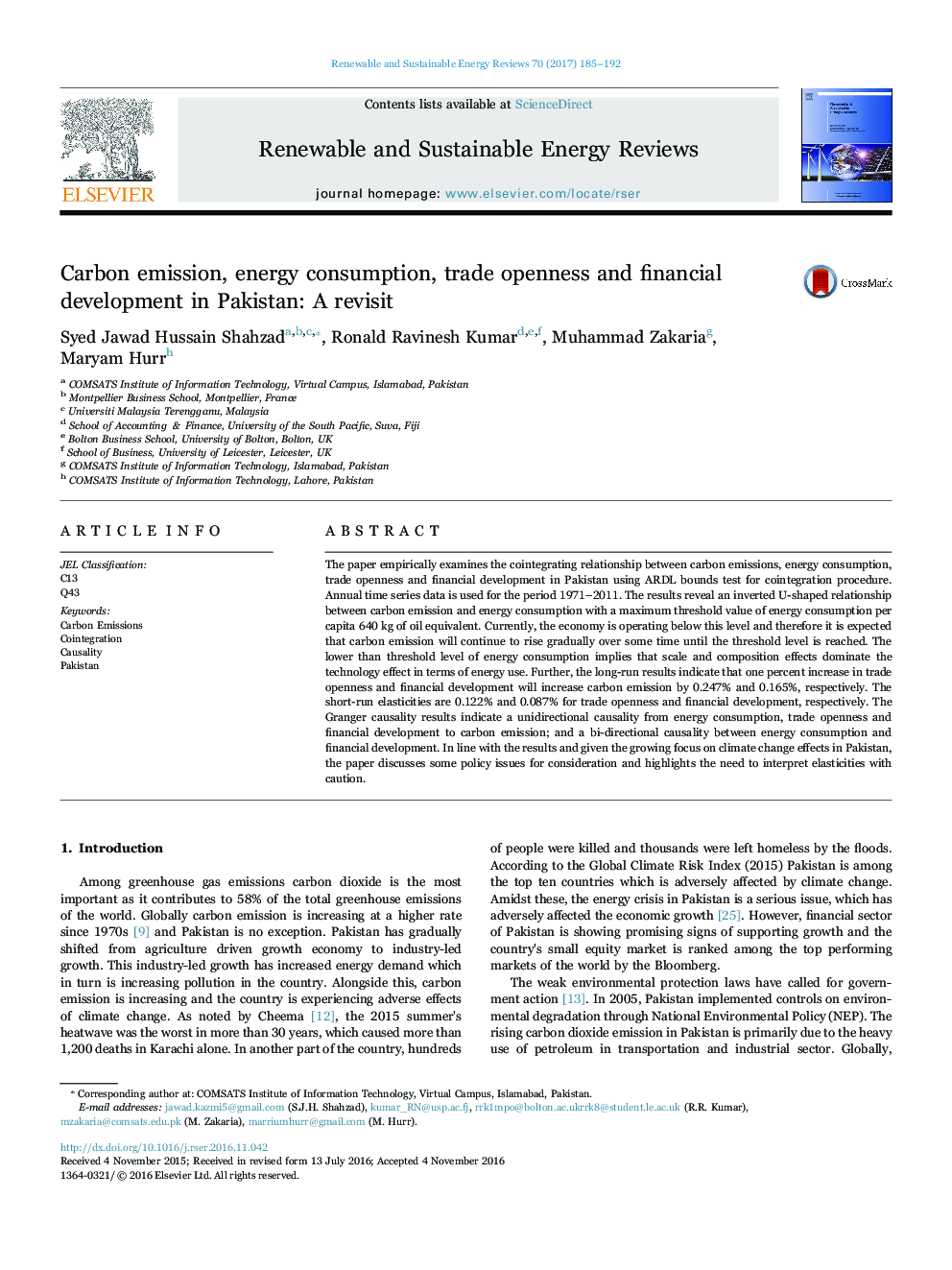| Article ID | Journal | Published Year | Pages | File Type |
|---|---|---|---|---|
| 5483221 | Renewable and Sustainable Energy Reviews | 2017 | 8 Pages |
Abstract
The paper empirically examines the cointegrating relationship between carbon emissions, energy consumption, trade openness and financial development in Pakistan using ARDL bounds test for cointegration procedure. Annual time series data is used for the period 1971-2011. The results reveal an inverted U-shaped relationship between carbon emission and energy consumption with a maximum threshold value of energy consumption per capita 640Â kg of oil equivalent. Currently, the economy is operating below this level and therefore it is expected that carbon emission will continue to rise gradually over some time until the threshold level is reached. The lower than threshold level of energy consumption implies that scale and composition effects dominate the technology effect in terms of energy use. Further, the long-run results indicate that one percent increase in trade openness and financial development will increase carbon emission by 0.247% and 0.165%, respectively. The short-run elasticities are 0.122% and 0.087% for trade openness and financial development, respectively. The Granger causality results indicate a unidirectional causality from energy consumption, trade openness and financial development to carbon emission; and a bi-directional causality between energy consumption and financial development. In line with the results and given the growing focus on climate change effects in Pakistan, the paper discusses some policy issues for consideration and highlights the need to interpret elasticities with caution.
Related Topics
Physical Sciences and Engineering
Energy
Renewable Energy, Sustainability and the Environment
Authors
Syed Jawad Hussain Shahzad, Ronald Ravinesh Kumar, Muhammad Zakaria, Maryam Hurr,
